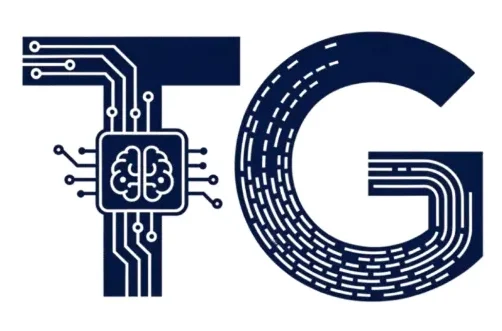Quantum computing is a groundbreaking technology. It could change industries like cybersecurity, medicine, and artificial intelligence. Unlike traditional computers, which use bits to process information, quantum computers use quantum bits, or qubits. Qubits can do more than regular bits, making quantum computers much faster for certain tasks. This technology is still developing, but companies like IBM, Google, and Microsoft are making big strides. Governments and startups are also investing heavily. Quantum computing could solve problems we can’t even tackle today.
Table of Contents
What is Quantum Computing?
Quantum computing uses rules from quantum mechanics. Quantum mechanics is a science that studies tiny particles, like atoms. Regular computers use bits, which are either 0 or 1. Quantum computers use qubits instead. Qubits are special because they can be 0, 1, or both at the same time. This is called superposition. It lets quantum computers handle many calculations at once.
Qubits can also be entangled. This means two qubits are connected, even if they’re far apart. When one changes, the other does too. This helps quantum computers work faster. Another trick is quantum interference. It boosts the right answers and cancels out the wrong ones. These features make quantum computing powerful but tricky to build.
Brief History
Quantum computing started in the 1980s. Physicists like Richard Feynman and David Deutsch had an idea. They thought quantum mechanics could help computers solve tough problems. In 1994, Peter Shor created Shor’s algorithm. It showed quantum computers could crack big math problems fast, like factoring huge numbers. This got people excited.
In the late 1990s and early 2000s, the first small quantum computers were built. They were basic but proved the idea worked. A big moment came in 2019. Google said its Sycamore processor achieved “quantum supremacy.” It solved a problem in 200 seconds that would take a supercomputer 10,000 years. Since then, progress has sped up.
Current Work
Today, quantum computing is growing fast. Big companies are leading the way:
- IBM: In 2021, IBM made a 127-qubit processor called Eagle. By 2029, they plan to build Quantum Starling. It will be much more powerful and reliable.
- Google: In 2024, Google’s Willow chip improved error correction. This is a key step to making quantum computers practical.
- Microsoft: In 2025, Microsoft launched the Majorana 1 chip. It uses stable qubits and aims for a million qubit system.
Startups like Rigetti and IonQ are also contributing. They offer quantum computing through the cloud. In 2024, startups raised $2 billion, up 50% from the year before. Governments are helping too. The U.S. has the National Quantum Initiative. The EU has the Quantum Flagship. Both push research forward.
How Will It Affect the Future?
Quantum computing could change many fields. Here’s how:
- Cryptography: Today’s encryption keeps data safe. Quantum computers could break it using algorithms like Shor’s. This means we will need new, quantum proof security soon.
- Drug Discovery: Quantum computers can model molecules precisely. This could speed up finding new drugs or materials. It might lead to medical breakthroughs.
- Optimization: Businesses face complex problems, like planning delivery routes or managing money. Quantum computers could find the best solutions faster.
- Artificial Intelligence: Quantum power could improve AI. It might speed up training models or make them smarter.
- Climate Modeling: Quantum computers could simulate weather or design eco friendly materials. This could help fight climate change.
These ideas are exciting, but we’re not there yet. Quantum computers need to get bigger and less error prone. Still, their potential is huge.
Conclusion
Quantum computing is a game-changer. It could solve problems classical computers can’t. Its ability to process information differently opens new possibilities. From cracking codes to curing diseases, the impact could be massive. But challenges remain. Errors are common, and scaling up is hard. Even so, companies like IBM, Google, and Microsoft are pushing forward. With more investment and research, quantum computing could shape our future in ways we can’t fully imagine yet.
FAQ
1. What is a qubit?
A qubit is the building block of quantum computing. Unlike a regular bit, which is just 0 or 1, a qubit can be 0, 1, or both at once. This lets quantum computers do many tasks at the same time.
2. How does quantum computing differ from classical computing?
Classical computers use bits and work step by step. Quantum computers use qubits and can handle multiple steps at once. This makes them much faster for some problems.
3. What are the potential applications of quantum computing?
It could transform cryptography, drug discovery, optimization, AI, and climate modeling. These fields need solutions to big, complex problems that quantum computers might solve.
4. When will quantum computers be widely available?
It’s hard to say exactly. Experts think practical quantum computers could arrive in the next 10 years. It depends on solving issues like errors and building bigger systems.
You might be interested in following article
Artificial General Intelligence (AGI) 2025: The Next Frontier of AI Explained

